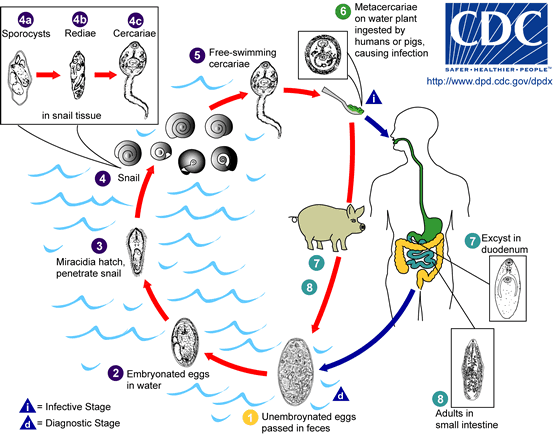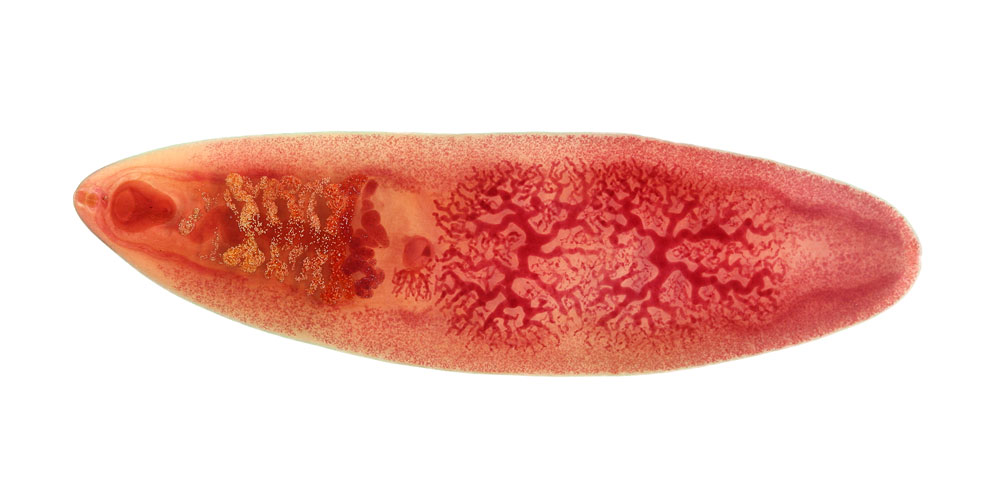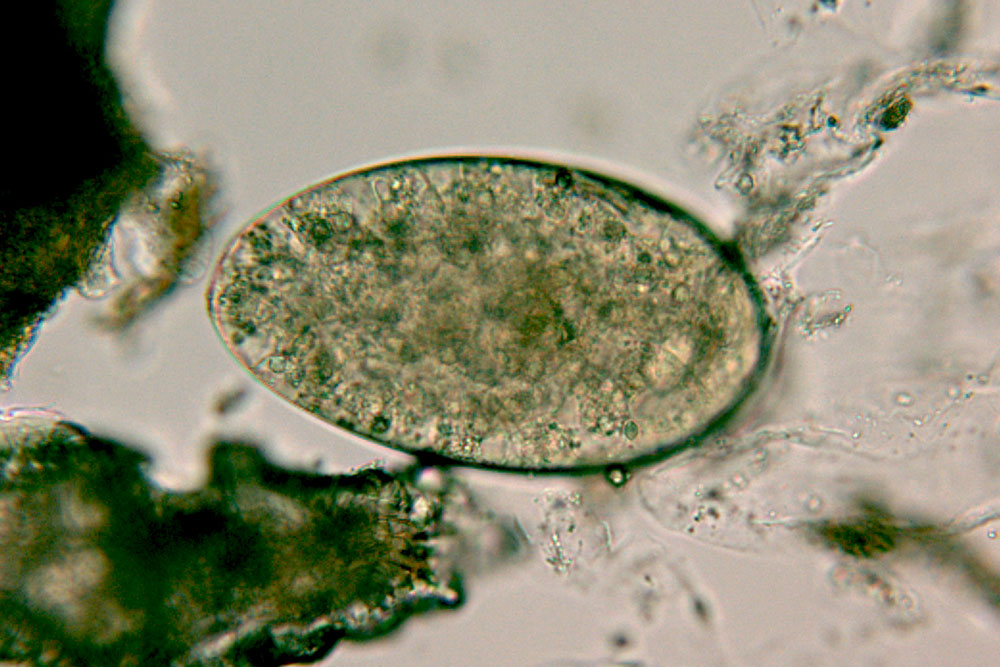Introduction to Diagnostic Medical Parasitology
Essentials
Fasciolopsis buski is a large intestinal trematode or fluke (length up to 7 cm).

Undeveloped large eggs are passed in the faeces. Miracidia develop outside the host within the egg and after hatching they have to find their snail (intermediate host) in which further development to cercariae takes place. Cercariae leave their snail host and attach to water plants where they encyst to metacercariae. Those are taken up orally by animals and humans. In the final host, metacercariae excyst in the intestine and develop into adult flukes.

Epidemiology
- Fasciolopsiasis is mainly prevalent in South-East Asia, south and central China
- Besides humans pigs are the major final hosts
- Transmission is restricted to the ingestion of freshwater plants (e.g. water chestnuts) with metacercariae

Pathology
- Attachment of flukes to the mucosa of the small intestine provokes small ulcerations followed by inflammatory reactions
- Systemic toxic effects may occur (e.g. oedema at various body sites)
Clinical Findings
- Most infections are asymptomatic
- In heavy infections, diarrhoea alternating with constipation may occur
- Additional symptoms might include vomiting, anorexia, nausea
Diagnosis
Diagnostic methods
Parasitological diagnosis
Fasciolopsis buski is one of several intestinal trematodes besides Heterophyes spp., Echinostoma spp. and Metagonimus spp. Their presence is detected by characteristic eggs in the faeces.
Sometimes adult worms can be detected in stool samples.
Molecular diagnosis
No tests available
Antigen detection
No tests developed so far
Antibody detection
No specific serological tests are available
Diagnostic strategies
Besides microscopic detection of eggs, no other diagnostic strategy is available

Prevention and control
- Educate people in endemic areas about the mode of transmission and life cycle of the parasite
- An important preventive measures is to cook contaminated water plants
- To be effective, mass treatment should include pigs